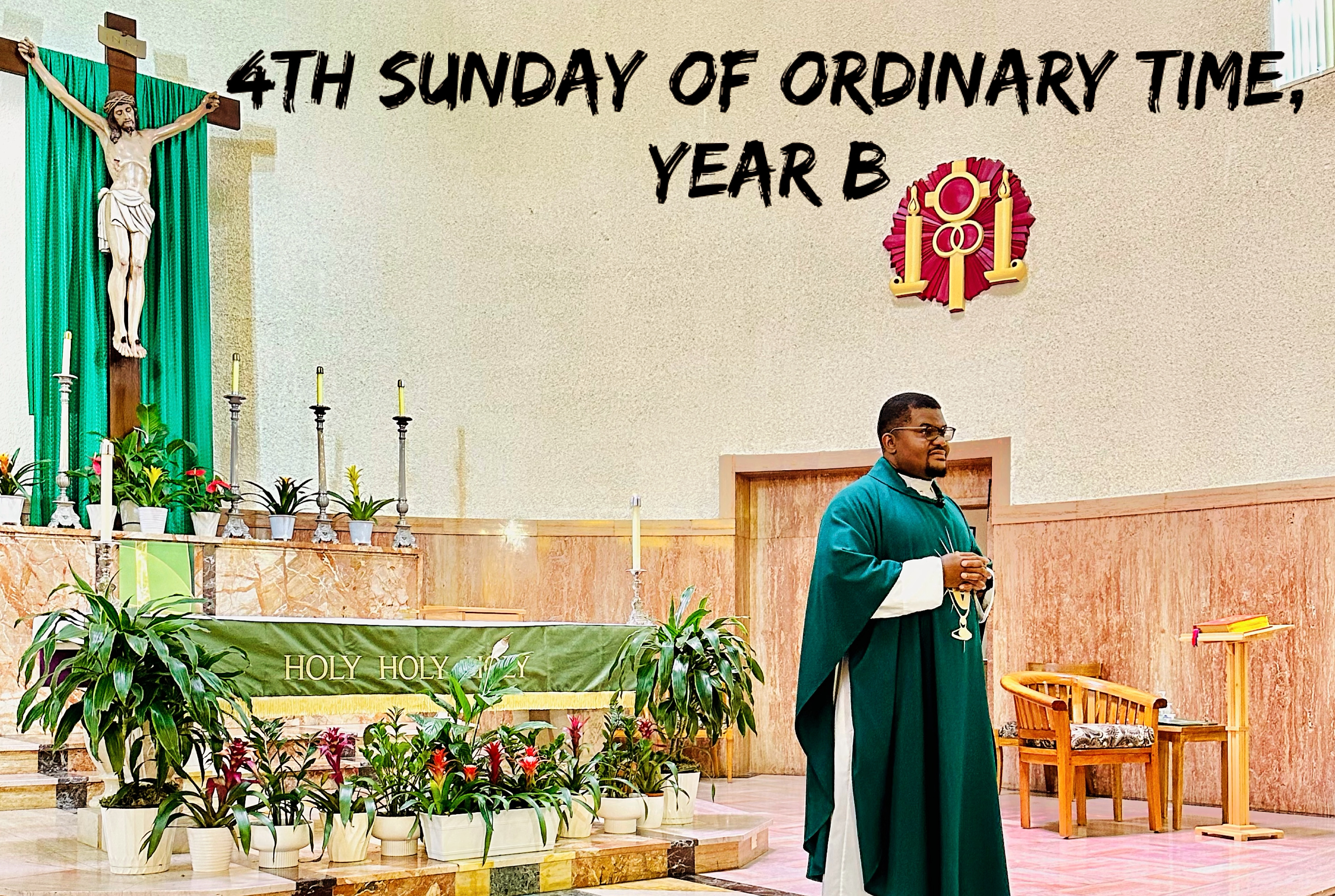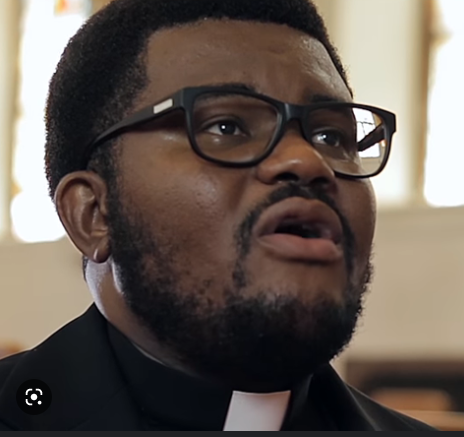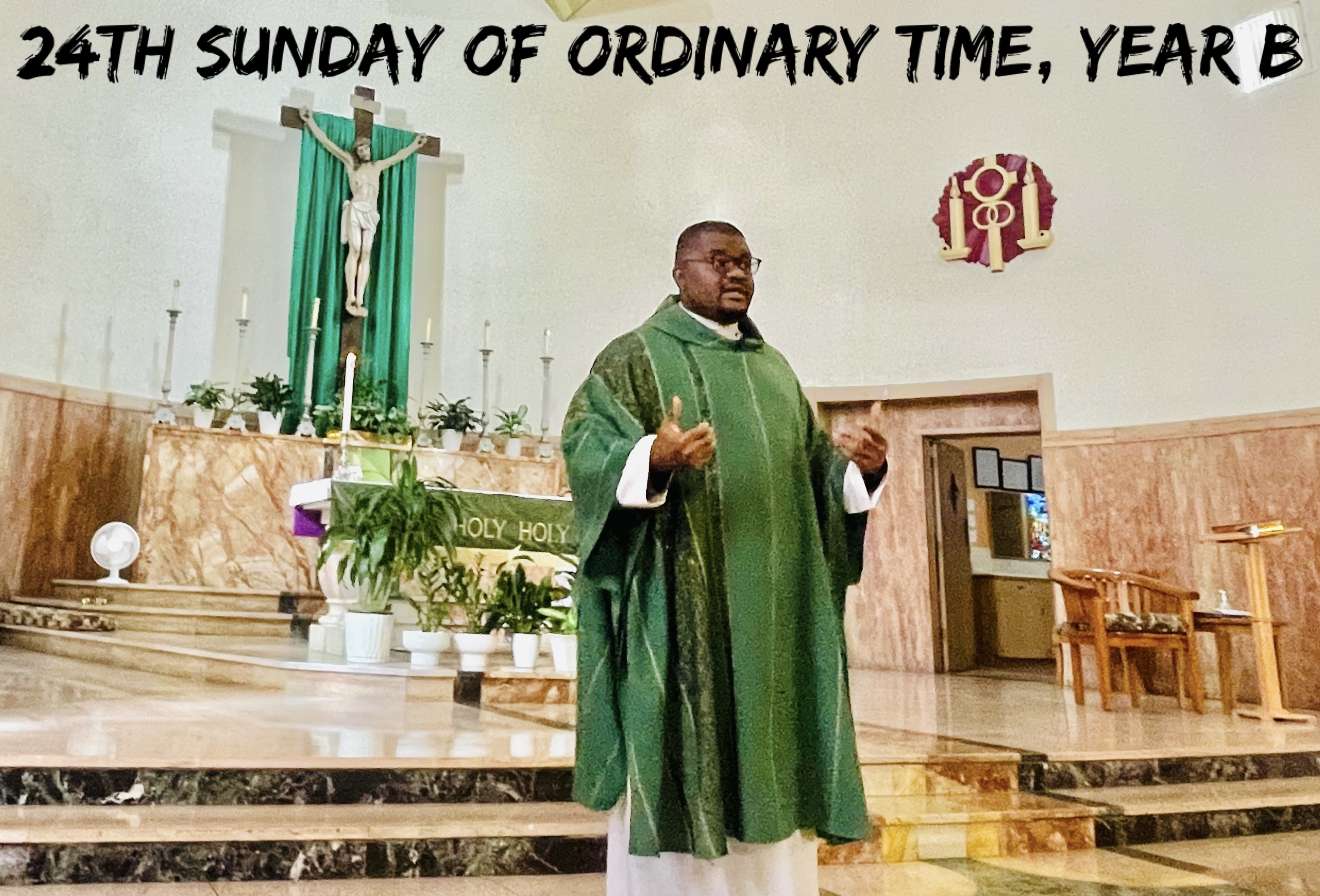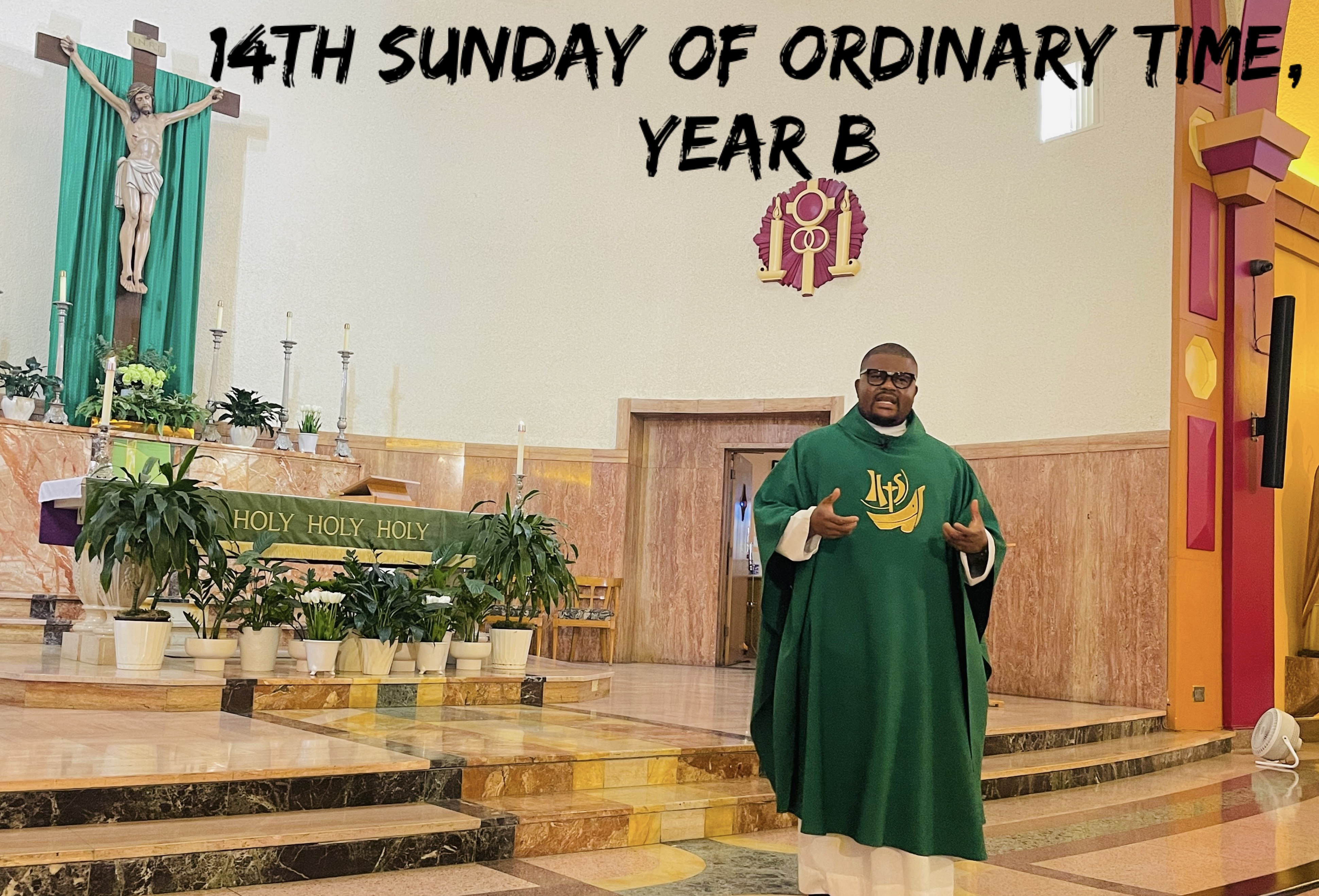4th Sunday of Ordinary Time, Year B
“The people were astonished at his teaching, for he taught them as one having authority and not as the scribes. All were amazed and asked one another, “What is this? A new teaching with authority.” These words we heard today in the gospel reading from the Holy gospel according to Saint Mark Chapter 1, verse 21 to 28, is a clear reminder of what we are called to do as disciples of Christ, which is, to go out and proclaim the gospel of Christ with authority and conviction. What is this authority all about?
According to the English dictionary, Authority is defined as the power or right to give orders, make decisions, and enforce obedience. The biblical definition of the word authority is understood and used to describe the power or ability to do something given by, conferred upon, or derived from a higher authority. It is the warrant, right, power, or ability to do something. Spiritual authority is “the God-given right to receive and use God's power that flows from the indwelling Holy Spirit.” So as Catholic Christians, we are called to use our God-given right to receive and use God's power that flows from the indwelling Holy Spirit to evangelize the world.
In the Catholic Church, we have three sources of this God-given right to receive and use God's power that flows from the indwelling Holy Spirit. These sources are – Scripture, Tradition, and the Magisterium. SCRIPTURE - In the Catholic Church, we absolutely believe in and respect the authority of Sacred Scripture. We also believe that, the Sacred Scripture is the inspired Word of God. Everything contained in it, is true, beautiful, and good. “For this reason, the Church has always venerated the Scriptures as she venerates the Lord’s Body. She never ceases to present to the faithful the bread of life, taken from the one table of God’s Word and Christ’s Body” (Catechism of the Catholic Church #103). TRADITION - Tradition is the way in which things have been understood throughout the history of Christianity, starting with the Apostles, and being handed down to today. The Apostles were the closest to Christ and had very intimate knowledge of Him and His teachings. They dispersed throughout the world, teaching and preaching, from this sprung a new generation of Christians who took on the same understanding and practices that were handed down to them. MAGISTERIUM - The Magisterium is the teaching authority of the Church as an institution created by Jesus Christ and protected by the Holy Spirit. We see the Magisterium in action in the Acts of the Apostles, Chapter 15, as we read about the Council of Jerusalem.
These three sources of authority are like a three-legged stool. None is more important than the other, and they all work together in a union for the evangelization of the world. As Catholic Christians, we are called to hold all these three sources to be equal sources in the passing on of the Faith. We are also reminded not to cling to one more than the other because our faith is equally and simultaneously dependent on all three, since they have been given to us as a gift of insurance from God, protecting the truth from our faulty human natures forever. So ask yourself today, am I proclaiming the gospel of Christ with authority and conviction? Am I proclaiming the gospel of Christ with my God-given right received in Baptism to be a prophet? Am I living out Christ’s call to go to the whole world and proclaim the good news?
My dear brothers and sisters, let us boldly, courageously, fearlessly and proudly proclaim the gospel of Christ with authority and conviction as Jesus did in today’s gospel reading because that is what we are called to do as disciples of Christ and as children of God.





